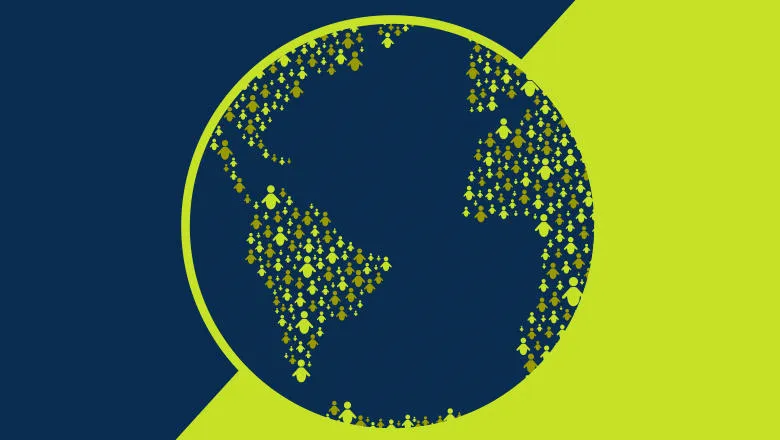Because of the overarching nature of the programme, it can benefit a wide range of professionals and graduate students from a diverse set of backgrounds who work or aim to work in global contexts, from tech companies to NGOs. The programme will benefit, for example, those engaged with diversity and inclusion in a personal or professional capacity, including those working in managerial roles in which ED&I policies are central to their professional development and leadership skills.
Dr Felipe Botelho Correa, Programme Director for Global Cultures MA/PG Dip/PG Cert
01 April 2021
Global Cultures – the new online master's asking the tough questions
The Faculty of Arts & Humanities at King’s has launched a brand-new online course - Global Cultures MA, PG Dip and PG Cert – one of the first of its kind.

What does culture mean to you? What are global languages? Are you aware of your own unconscious biases? We live in an increasingly diverse and interconnected world, but do we really understand each other? This year, a brand-new online course is being offered by the Faculty of Arts & Humanities at King’s to address these questions and more.
The online Global Cultures master’s will help its students understand how global cultures are defined, and how they differ, interrelate and co-exist. Students will go on a personal journey as they question their perception of culture and discover how they can facilitate positive change in their own lives and workplaces.
Leading academics, including Dr Felipe Botelho Correa, Professor Toby Green, Dr Elisa Sampson Vera Tudela and Dr Ben Schofield, will share their knowledge and experience on complex topics such as race, gender, language and migration. As students gain a unique global perspective across these topics, they’ll also learn how to apply this understanding in the real world.
How is the course structured?
Global Cultures handles complex subjects, including race and gender, with three different approaches. Firstly, the course offers Cultural Concept modules which cover both the historical background and the roots of contemporary cultural challenges. Secondly, Cultural Practice modules allow students to put theory into practice and prepare students to utilise skills such as inclusion, ethical awareness and communication in real-world contexts. Finally, students undertake research using their own ideas and experiences to design and develop an independent capstone project.
What are the career prospects?
Current workforce reports have pointed to a soft skills gap and suggest that the relevant skills of the future will require a human element that cannot be learnt by machines. These skills include critical thinking, empathy, creativity and leadership, all of which can be developed during this course.
Through understanding aspects of global cultures, students will gain highly transferable skills, which will benefit a wide range of career options in many sectors. It’s particularly beneficial for those who:
- work or want to work for a global business or organisation
- are in a leadership or HR position and want to better understand the needs of their colleagues
- wish to facilitate positive change in their personal and work life
- have a desire to work for NGOs and development organisations
- wish to go onto further research in global cultures
When does it start?
This course is taught 100% online, so students can complete it from anywhere in the world, alongside work and life commitments. Applications open in April 2021 with the first start date taking place in September 2021. The flexible curriculum allows students to choose from six intakes a year and study when it suits them.
To find out more about this programme, explore our Global Cultures programme page.
